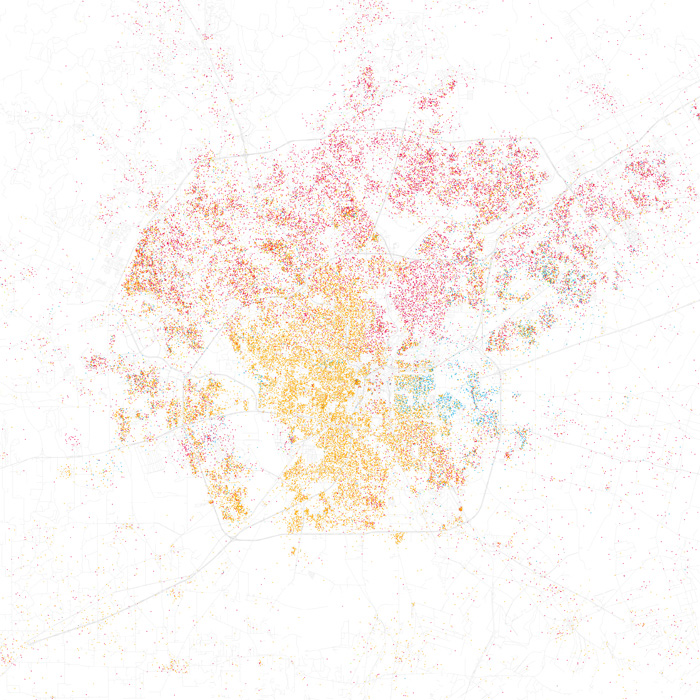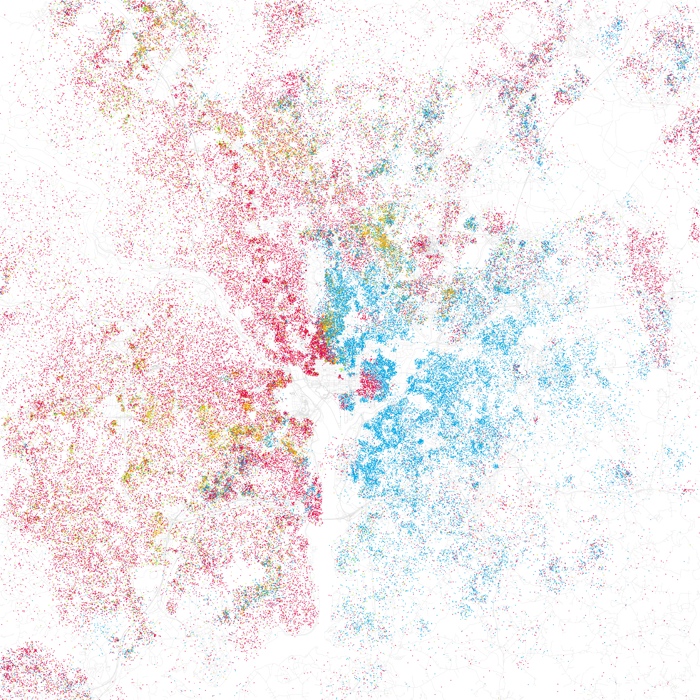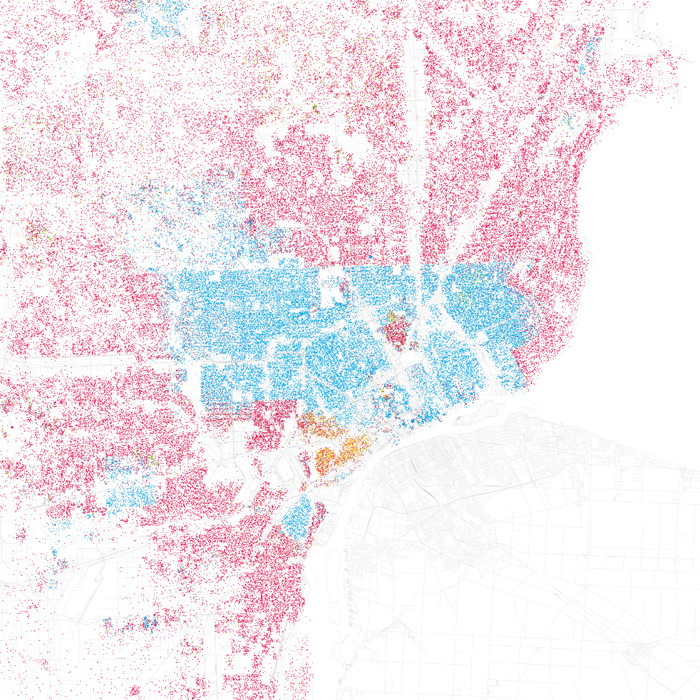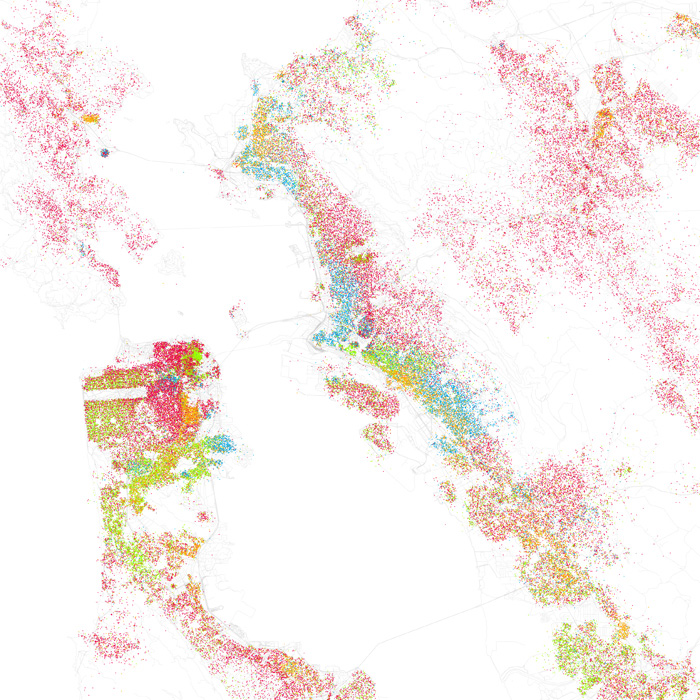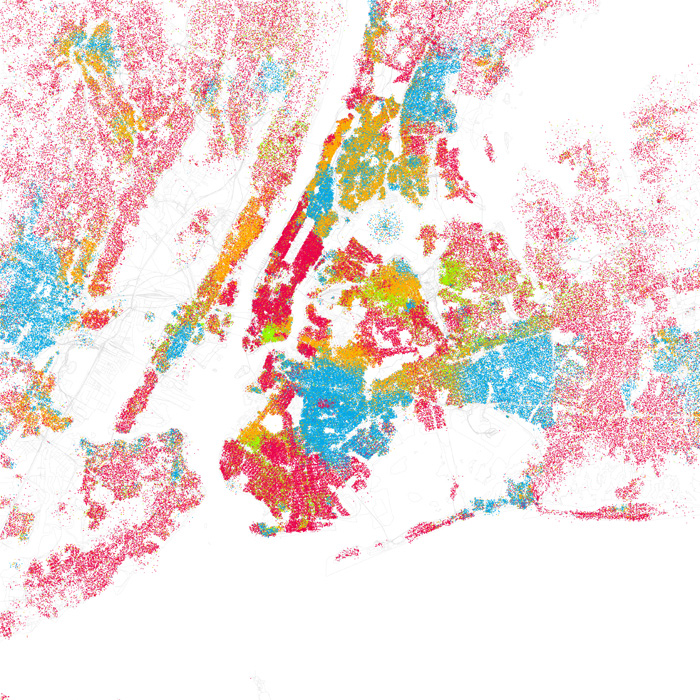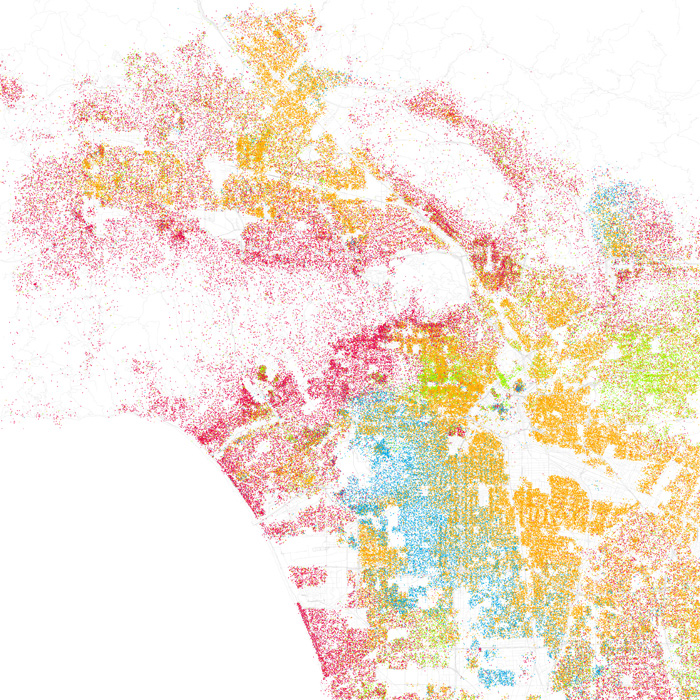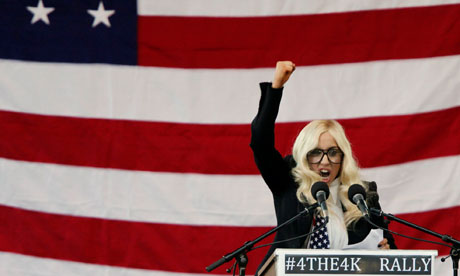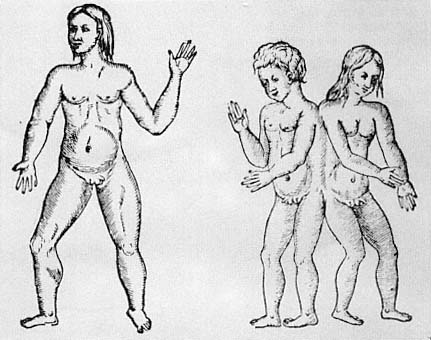http://abcnews.go.com/GMA/video/tragic-end-online-spying-rutgers-student-tyler-clementi-suicide-11764232?&clipId=11764232&playlistId=11763784&cid=siteplayer
Course website for Fall 2010 edition of CSP 19: LGBT Rights in the Era of Obama and Google.
Thursday, September 30, 2010
Freshman at Rutgers Kills Himself Internet Exposure
http://abcnews.go.com/GMA/video/tragic-end-online-spying-rutgers-student-tyler-clementi-suicide-11764232?&clipId=11764232&playlistId=11763784&cid=siteplayer
Dan Savage's It Gets Better Video Project To End Gay Suicide
The idea is stop gay teen suicides by letting them know if they can just make it through high school, life gets better.
What an increasing number of interracial citizens means
I looked up the term "identity politics" on the Stanford Encyclopedia of Philosophy where it defines it as meaning "a wide range of political activity and theorizing founded in the shared experiences of injustice of members of certain social groups" or, as WiseGeek said in a much simpler way, it is "when members of a specific subgroup unite in order to affect political or social change."
The author writes that the upcoming generation could have as many as 1 in 7 interracial children, or on the western states, as many as 1 in 4. This new generation will "find itself at odds with America's divisive identity politics" and could end these politics by, instead of becoming part of an existing subgroup, finding a different, less divisive way to get involved with issues.
I don't know if interracial people will end identity politics all together, because race isn't the only thing you can identity with and group with others on. There's also gender, sexuality, socioeconomic status, religion, geographic location, etc. I do hope, though, that it will be a beginning to "bypass[ing] labels and embrac[ing] individualism."
The author also makes another point, that people will ask his multiracial kids, "What are you?" wanting to know their specific racial makeup. He writes, "In the age of identity politics, it is not stories but race that matters." I don't know if asking "What are you?" directly correlates to identity politics, though. Some people are just curious. As a biracial person, I have never taken offense to the question, "What are you?" On a side note, some Latino people have assumed that I was also Latino and were very surprised to learn that I have not a drop of Latino blood in me. I don't find that offensive; I find that fun and, in a way, flattering.
The author also writes about choices multiracial people have when "they enter into a world where no choice is clean-cut." I think the great thing about being multi/biracial is that you can choose whatever you want. I went through a very brief time period where I would whine about how I would never be fully accepted into white culture or in Asian culture, but my dad offered the idea that being multiracial meant that you wouldn't awkwardly stand out in any culture. You look different, but not in an obvious way. You could fit in anywhere. I like that idea much better.
Roommates, Web Cams, Homophobia, Twitter and Another Gay Suicide
The New York Times reports today:
It started with a Twitter message on Sept. 19: “Roommate asked for the room till midnight. I went into molly’s room and turned on my webcam. I saw him making out with a dude. Yay.”
That night, the authorities say, the Rutgers University student who sent the message used a camera in his dormitory room to stream the roommate’s intimate encounter live on the Internet.
And three days later, the roommate who had been surreptitiously broadcast — Tyler Clementi, an 18-year-old freshman and an accomplished violinist — jumped from the George Washington Bridge into the Hudson River in an apparent suicide.
The Sept. 22 death, details of which the authorities disclosed on Wednesday, was the latest by a young American that followed the online posting of hurtful material. The news came on the same day that Rutgers kicked off a two-year, campuswide project to teach the importance of civility, with special attention to the use and abuse of new technology.
Read the whole article and other stories about Tyler Clementi online, then feel free to provide your thoughts about the issues this news brings up in the comments.
Wednesday, September 29, 2010
make your own damn sandwich!!!!
The Ethics of (en)Forcing the Gender Binary
"Passing"
WATCH: MI Public Official Cyber-Bullies Openly Gay UM Student
Cross-posted from The Mad Professah Lectures
Monday, September 27, 2010
NAACP leaders reach out to LGBT community
President Benjamin Jealous said, "The NAACP is opposed to discrimination in all its form. We recognize that many of our members are also members of the LGBT community, and just as the LGBT community counts on us to stand with it for basic civil rights protections, so we count on the LGBT community to stand with us in our unified struggle for the broader civil rights agenda."
Instead of dissociating from each other, the NAACP president has acknowledged the common ground that both groups share. There is no mention of any sort of the "who has it worse?" dispute, as Hancock states is common among minority civil rights groups. She writes, "I call this the additive oppressions argument, and it is easy to see where this question leads - directly to the Oppression Olympics question of, 'Who has it toughest?'"
Unfortunately, some members of NAACP are very much opposed to same-sex marriage, including the Rev. Keith Ratliff Sr. He is a national NAACP board member and has demanded Iowa lawmakers begin the process of amending Iowa's Constitution to keep marriage between a man and a woman.
The NAACP national board has not taken a side on this issue.
Sunday, September 26, 2010
Gender Bias leads to "Missing" Statitstics
Saturday, September 25, 2010
Angelic Androgyny
Friday, September 24, 2010
PSA of the Future... and President Chuck Norris
This is a video that I watched a few weeks ago. I laughed and showed it to anyone who would watch, but other than that did not really think about it. Analyzing this video now, I can't figure out if this is offensive or enlightening. This is a parody of those in today's society who have a tendency to take things to the extreme, but it could also be a disturbing look into what homosexuality means to those who are against homosexuality or very defensive about their own sexuality. I personally would like to think of it as a satirical remark on certain extremists who advocate against anything to do with homosexuality. But I can't help but think about the whole "grain of truth" thing. With all of the advances with gay rights in the past few years, could this be a fear that extremists actually have?
Thinking Gender 2010: Plenary Session: Intersectionality Acts from the M...
Thursday, September 23, 2010
Cities Divided by Race
American Night: The Ballad of Juan Jose
This phrase, scrawled in graffiti on the back wall of the set, is the prelude to American Night: The Ballad of Juan Jose, a play I saw at Oregon Shakespeare Festival last summer. American Night is the first of 37 (equal to the number of Shakespeare shows in rotation) plays commissioned by the festival meant to commemorate exceptional events in American history. It was created by L.A. native Richard Montoya and the improv group Culture Clash. And also of note, in my opinion, is the fact that it is the first show that OSF has ever had to add performances of in order to satisfy ticket demand. Considering that the show is running the same season as what everyone I know (who saw it) considers the best performance of Hamlet they have ever seen, this is no mean feat.
American Night focuses on the struggles of character Juan Jose, a Mexican immigrant and permanent legal alien, as he studies on the eve of his U.S. citizenship exam. Despite his best efforts, he falls asleep in the wee hours of the morning. With this premise, he falls into dreams of the highest and lowest moments of America, from the Treaty of Guadalupe, to Lewis and Clark, to Woody Guthrie and the Great Depression, culminating in a Town Hall meeting and wildly strange Japanese game show. Moving and irreverent and completely un-politically correct, the play offers an earnest look at America's past and present, and a form of patriotism unlike any other shines through.
One of the many traits I admired about the play, and one particularly relevant to the breaking down of boundaries, was its unwillingness to treat any of the groups it portrayed in an unfair light. Nobody was made a laughingstock. Certainly there were laughable characters, but still, they were treated fairly. In attending a post-play talk with Richard Montoya, this was a point he stressed, specifically citing the two Mormons who come to help Juan Jose study at the beginning of the play. I remember Montoya was adamant that they not come off as a joke, and they did not. Nor for that matter did the hippies at Woodstock or the tea baggers at the Town Hall meeting. Absurd though they might be, their humanity was not compromised.
Though I don't think Montoya is much of a social constructionist, and the phrase "Las fronteras son cicatrices en la tierra" (at the end of the play, it has been translated, as the graffiti is actually a lighting effect) clearly refers more to physical borders between countries, specifically to America and Mexico, than it does to metaphorical/theoretical boundaries, American Night clearly demonstrates a desire to treat people not as blacks, whites, Mexicans, males, females, etc., but as people. And in a basic way, this is what dissolving binary oppositions is about: seeing people on the basis of who they are, not what they are. Another poignant moment in the play, Juan's visit to a Japanese internment camp, also illustrates this idea. Along with the Japanese-Americans, Juan Jose finds a hispanic teenager who went along to the camp on the grounds that he is no more or less American than those contained there, so if the Japanese are to be sent to camps, you might as well send him as well. And along with him, there is a middle class white woman who went along because she was unable to stand the fact that no educational services had been provided for the youth of the camp by the government. Voluntarily, she teaches them herself. The solidarity exhibited by these individuals and others in the play crosses borders of race, gender, religion, and political ideology to show that none of these things defines whether or not you are an American and, in a larger context, a human being.
Anyway, here is a review of the play, and here is some information on it from OSF's own site. If you're really interested, can afford it, and have the time (as if, we're all college students) the show plays till the end of October. (More realistically, being that Culture Clash is an L.A. based group, they may perform it here some time in the future, so this is their website).
Legislating Morality.
Wednesday, September 22, 2010
Google Instant
EQCA Tries To "Shame" Whitman and Cooley For Prop 8 Support
Whitman's gubernatorial opponent, Jerry Brown, is the current Attorney General and has refused to defend Proposition 8, as has current Governor Arnold Schwarzenegger. San Francisco District Attorney Kamala Harris is running against Cooley for Attorney general and has said she would not defend Proposition 8 in court because she feel it is unconstitutional.
The ads are set to begin airing on Monday, September 27, and will run on the CNN, FOX and MSNBC affiliates in the Los Angeles, San Francisco, Sacramento, San Diego and Palm Springs metropolitan areas.
Cross-posted from The Mad Professah Lectures.
Recent news: DADT is not old news
Riddle Me THIS
Even Lady Gaga Couldn't Convince the Senate...
The US Senate's Tuesday vote ended in a decision that left gay-rights campaigner's still gnashing their teeth. The Republicans blocked attempts to debate the repeal of the military "Don't Ask, Don't Tell" policy (hereafter referred to as DADT).
For those of you who've been living in a hobbit-hole for the past seventeen years (don't you wish?), DADT was a measure introduced in 1993 by then-President Bill Clinton. Intended to be a compromise measure, it forbade openly-gay/lesbian persons from serving in the military. It both requires that military authorities not ASK the sexual orientation of any military person, as well as that the servicemen/women don't TELL. I realize that this is a fairly simple summary of a very complex issue, but just go with it :)
While the American public originally endorsed the bill, we've since become to see it as it truly is: a dramatic loss of rights to the homosexual community. According to Wall Street Journal, nearly 60% of Americans favor the repeal of DADT. While military support is at only 49%, huge strides have been made in the last 7 years, raising military support over 13 percentage points.
President Obama promised during his 2008 campaign, that he would work to scrap the "Don't Ask, Don't Tell" policy. The House voted to repeal DADT back in May, but only five Republicans voted in support. The party-line division was particularly devastating to Tuesday's decision-- out of the 60 votes needed for debate, only 43 Senators, all Democrats, voted in favor. Not a single Repulican voted to allow debate on the bill. NPR hypothesizes that, with the return of Republican control to the Senate (as is expected in November's election), chances that the repeal will reach Senate floor will grow even slimmer.
Republican leaders, most notably John McCain, stated that they believed no debate could occur on the measure until December, when the Pentagon's lastest study will be available. The Pentagon is currently amassing data as to whether or not the repeal is likely to harm military cohesion.
Lady Gaga used her star-power on Monday at a rally in Portland, Maine, to raise awareness and pressure the DADT repeal. She specifically targeted Maine Senators Susan Collins and Olympia Snowe, both of whom voted against debating a repeal on Tueday.
Does this mean the end of debate on the repeal? Probably not. Gay-rights activists and Democratic leaders alike say it's only a matter of time. Time, however, is of the essence. Lame-Duck Season is quickly approaching, and it doesn't look like debate will be opening any time soon. We'll see.
Mestiza Continued
Tuesday, September 21, 2010
Afghan girls pretending to be boys
In Afghan, boys are seen as much more important and are highly prized. Mothers face immense pressure to conceive a male child, and people will pity them if they have only daughters. Mothers who don't want to have another child, like a woman named Azita Raffat, who wanted instead to advance her political career, decided to change her daughter into a son. She introduced the idea of being a boy by saying, "Do you want to ... do more fun things like boys do, like bicycling, soccer, and cricket?"
The gender roles in Afghanistan are much more pronounced and strict than they are in the U.S., and these girls-turned-boys are able to practice "masculine" traits such as athleticism, aggressiveness, and defiance without fear of breaking cultural norms. Mrs. Raffat says of her daughter, "[She has] adopted all the boys' traits very soon ... the attitude, the talking. She has nothing of a girl in her." This of course implies that "girl" traits are submissiveness, obedience, and subdued.
It was interesting to read about how these girls, raised as boys, had to eventually change back as they went through puberty and their bodies changed. They had to start wearing burqas and learn how to socialize with women. The girls interviewed in this article were not particularly happy about changing back. A woman named Shukria Siddiqui was raised a boy until her parents arranged a marriage for her. She refers to her male years as her "best times" because she was able to be more outspoken. The man she married allows her to wear trousers around the house sometimes because he knows it makes her happier (cue for the "aww"). He once tried to beat her, but never tried it again after she hit him back. Retaliation is seen as a masculine trait and is taboo for a woman to exhibit.
Unlike in the United States where defying gender roles is becoming more of the social norm and can have more to do with personal choice and preference, in Afghanistan, your gender identity can make or break your economic welfare. A ten year old girl named Miina dresses like a boy and works to earn money for her family. Being a boy is the only way for her to work, as girls are not allowed to. Having a son also increases the family's status in society, if only temporarily.
To be a male in Afghanistan is to command respect, be able to work and earn money, to have more freedoms. One girl-turned-boy says she would rather be a boy and doesn't want to change back: "People use bad words for girls. They scream at them on the streets. When I see that, I don't want to be a girl. When I am a boy, they don't speak to me like that." She is the same person; it is just her gender that decides how society will treat her.
Pictures here.
Why Haven't we Developed Mentally?
When reading this I could not stop thinking about how similarly the issues in this article reflected the current issue with Homosexuality in the army. When reading this article yesterday, all I could think about was how similarly, the gays were being "fenced" as well and being forced to socially drop their identity as homosexuals in order fight for their country. One line in the article we read really stood out to me. "Awareness of our situation must come before inner changes, which in turn come before changes in society. Nothing happens in the "real" world unless it first happens in the images in our head." (Anzaldua) The intolerance that the military is experience at the moment just makes the think of that quote and if that quote is truly real, then the world has not developed mentally enough for there to be any sort of tolerance and change.
National Poll Shows Majority Support For Marriage Equality
Monday, September 20, 2010
Urinary Segregation
Slightly different take on gendered bathrooms:
Urinary Segregation
"When I was 25 years old I was in New York’s Guggenheim Museum. As I started walking into the women’s bathroom, a security officer put his hand on my shoulder and said, “Hold on there a minute, you (expletive) pervert, you can’t go in there' ...I literally had to go to the security office to convince him not to throw me out of the museum.All my life, I've used the bathrooms of both genders with impunity (hey, it's more efficient) and that, combined with being both biologically and personally female, has resulted in me never even thinking about the choices people have to make when they choose bathrooms, or the reactions they receive.
This sort of gender policing is extreme, but at a daily level, many people find going to the bathroom a similar ordeal....public bathrooms, a product of modern technologies and anxieties, are no longer built to withstand our postmodern blurring of binaries.
We should remember that urinary segregation is not just a site of oppression, but a site of privilege and people with privilege will fight to keep it. If we look at urinary segregation as symbolic violence, we can see that it will take a lot more than legal arguments to take it away. By insisting that all bodies must divide into “Men” or “Women,” “Gentlemen” or “Ladies,” or even “Dudes” and Dudettes,” public toilets are able to erase the messiness of bodies and gender.
Whenever I bring up urinary segregation in my gender class, white women will say “rape.” When I point out that their bathrooms at home are not segregated by gender and that sexual violence is far more likely to be committed by people we know, they resort to “but men are gross.”"
The section about the female reaction to mixed gender bathrooms, however, was fascinating. Relating back to my earlier bathroom-related post (why can I even claim authorship of two), there is a view expressed (mostly by heterosexual women, as far as I can tell) that male is equivalent to violence, and violence equivalent to rape, and when males are in bathrooms they get violent and rape is the outcome. In no way do I want to discount the very real danger of rape in public restrooms, it's a risk and one everyone should be mindful of, but there is also the danger of associating all men with danger all the time.
The coffee shop down the street from my high school wins points, not only for being awesome, but for their gender neutral bathrooms. I couldn't find a picture online, but but their bathroom signs feature Ken and Barbie dolls with a twist: Kenneth is wearing an extravagantly lacy red tank top, offset by his fabulous turquoise man-purse and floral jeans. Barb has a black tux and hot pink sneakers. Anyone can go into any bathroom. I don't know how either of my bathroom-writers would react to these signs (I'm sure you could have another year long discussion about how the exaggerated differences are non-representative of the behavior of actual gender-neutral people), but I personally love them.
I'll leave you with the lovely Andrea Gibson and her piece, Swing Set:
"Then of course there’s always the somehow not-quite-bright enough fluorescent light of the public restroom, “Sir! Sir, do you realize this is the ladies’ room?” “Yes, ma’am, I do, it’s just that I didn’t feel comfortable sticking this tampon up my penis in the men’s room.”"
Who's a family?
"in 2006, when asked if gay couples and pets count as family, 30 percent[of poll participants] said pets count but not gay couples.
"The sheer idea that gay couples are given less status than pets should give us pause," Powell said in an interview.
Even though five states and the District of Columbia now allow same-sex marriages, the federal government doesn't recognize them. The Census Bureau definition of "family" remains traditional: "A family is a group of two people or more (one of whom is the householder) related by birth, marriage, or adoption and residing together."
Many religious conservatives hope the government sticks by that definition, even in the face of shifts in public opinion.
"Same-sex marriage is a dangerous social experiment," said Glenn Stanton, director of family formation studies for Focus on the Family. "A lesbian couple who legally married in Massachusetts — are they family? We would say, 'Absolutely not.'"
While this article's hook is enough to keep you thinking for a while ("straight people with cats are families but gay people with cats, dogs, and two kids aren't? hmm...") it also has a nice overview of current feelings around marriage, families, and adoption issues. The interests of many groups, gay or straight, are brought to light in a pretty well rounded way, which i appreciate.
Quite often the debate in America is over how 'marriage' should be defined, but this article also brings up how the definition of 'family' ties into that debate. People opposed to the idea of same sex marriages, for example, oppose not only the change in the definition of 'marriage' but the change in the formulation of a traditional 'family' (the 'think of the children!' card is played rather often, despite multiple research studies).
This article also mentions a whole book on the subject, and I do love book links.
GOOGLE Images.
Androgyny: Creating a Modern Middle Line
We, as a society, both consciously and unconsciouly place people in one gender category or another (or sex category, but usually gender during day-to-day interactions). It goes without saying that this is a problem. That our continued use of stereotyping and instant judgment will only lead to negative consequences.
However, to play devil's advocate, I think modern society has arguably begun to move in the correct direction. Our continued fascination with and acceptance of androgyny is a perfect example. The term didn't even exist until the mid 70's, but has recently become both widely used and somewhat accepted.
The word "androgyny" comes from the Greek; Andro meaning man and gyn woman. The premise of androgyny is that those lists of purely masculine or purely feminine traits no longer exist. Society has a way of forming boxes and stereotypes of what it expects from either gender, but androgyny, while not being a different biological sex, is a new take on gender identity. Androgyny assumes that one does not have to be either blunt OR tactful, dominant OR submissive, dependant OR independant; rather, that different traits are applicable at different times.
This trait androgyny is often referred to as psychological anydrogyny, but physiological androgyny also exists when one exhibits physical traits (not necessarily sexual traits) of both sexes. Some people look androgynous but are not true androgynes. True androgyny is not merely a fashion statement or a look-- many androgynes do not look so. Androgyny is a new movement, a more non-polarizing gender identity.
I don't think we're anywhere near to solving the gender-box problem, but I think recognizing the spread of androgyny and other movements like it that blur the lines between genders is important :)
Effeminacy. Too Feminine?
So then, where do we draw the line? At what point does typically homosexual behavior make a heterosexual man seem gay? Who decides?
A Villain's Sexuality
As I read fellow blogger Hanna White's post "Homosexuality in the Media of Different Cultures" I recalled a comic book character whose sexual actions are somewhat ambiguous. His name is Daken and he is the long lost son of Wolverine, the infamous 120 year old mutant member of the X-Men and the Avengers.
Daken's history is a tragic and violent one. He was born with the name Akihiro in the 1940's as the illegitimate son between Canadian Wolverine (also known as Logan) and a Japanese woman named Itsu. His mother was killed by an assassin who was targeting Logan at the time and he was cut from the womb of the dying mother by a shadowy villain named Romulus. Romulus, who had tormented Wolverine from behind the scenes, gave him up to a Japanese family in a small village where he was tormented by other children for his biracial heritage. They gave him a racial slur which became his nickname "Daken". Because of the hate and prejudice he encountered, he grew up with a resentment of the world. His hatred of the world combined with his mutant powers (genetically inherited by his father) of bone claws and his healing factor led him to becoming a dangerously violent villain. He killed his parents when they tried to abandon him and he worked as an assassin for decades never aging thanks to his healing factor. He also had a burgeoning hatred for his father Wolverine, who was unaware at the time that he had a son because his memories of the past were wiped out by government program Weapon X. It would be years later when he met his father (who regained his memories) and the two confronted each other. In the mean time Romulus manipulated through torture and training Daken turning him into a relentless killing machine.
Daken is not the first LGBT comic book character introduced but he is the most fascinating. For example, in one issue he emotionally pushes a woman to commit suicide when he reveals that he had sex with her husband. His homosexuality is also evident when he kisses his Dark Avengers teammate Bullseye in an effort to calm him down while they fight the Asgardians. Later when he fights the Fantastic Four's thing, he manipulates him through pheromones while goading him with homoerotic remarks. Readers can assume that Daken is obviously homosexual but this might not be the case. For example, when teammate Hawkeye (Bullseye in disguise) questions Daken's dual membership in the Dark Avengers and the Dark X-Men Daken simply responds "I always did like playing for both teams". This double entendre is evident when he is sexually involved with women in other issues only to manipulate them into doing his bidding.
To explain Daken's sexuality one must understand his personality. He is a victim of society's prejudice against mutants and a victim to emotional manipulation by a shadowy being he could not resist. He has been for his entire life subject to the bidding of Romulus. So, Daken simply uses his sexuality to manipulate others into doing his own bidding. Like his master he is not above cruelty as he has sadistically damaged the emotions of his victims often forcing them to commit suicide. As "Wolverine" writer Daniel Way explains, "He is no more homosexual than heterosexual. It's about control." Because Daken never received love from anyone and only experienced pain and suffering, he is completely incapable of giving love. As a result, his sexuality is not an expression of love or desire, but simply a weapon he uses for cruelty and sadism.
Sunday, September 19, 2010
The Big Black/White Binary
Discrimination Against Black Women
As I read Free Papers by Daniel J. Wideman I realized that the piece concentrated on the issue of young black men being discriminated against. Not once was discrimination against young black women mentioned. Discrimination against black women isn’t only disregarded only in this piece but in many other places in society. Since this issue is so ignored I decided to do a bit of research and find out in what ways black women were most discriminated against and how they dealt with it. I was also curious to learn if they were more heavily discriminated against than black men because of their gender.
The most useful and informational article that I found was Black Women: The Unfinished Agenda by Cecilia A. Conrad in The American Prospect. This article explained how black women are discriminated against both because of their race and gender. Hence, even though black women have advanced so much in the fields of education they still earn less than black men, white women, and white men. The unemployment rates are also a lot higher for black women than all the previous categories mentioned. The article goes on to explain the detrimental effects of discrimination against black women. It’s a very interesting and enlightening article, I recommend everyone to read it.






